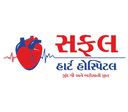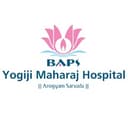Diploma in Pharmacy (DPharm)
OR
Prepared by Docthub Courses Team ∣
Last updated on 18 Jul 2024
Overview
D Pharmacy is a two-year diploma program that prepares students for a career in the pharmaceutical industry. To be eligible, students must have passed class 12 or equivalent in a relevant discipline with an aggregate of at least 50% marks.
Admission is based on either an entrance exam or merit-based selection. The average tuition fee for this course in India ranges from INR 10,000 to 1,00,000 per year.
Upon completing the course, graduates can work as Pharmacists, Scientific Officers, Quality Analysts, Production Executives, and Medical Transcriptionists in both public and private sectors. The initial salary for a Pharmacy diploma holder ranges between INR 2,00,000 to 5,00,000 per annum and increases with work experience and knowledge.
Furthermore, this course serves as a foundation for further studies and prospects, including pursuing a B Pharma or other Diploma courses. Overall, D Pharmacy is an excellent choice for students interested in a career in the medical sector of pharmaceutical sciences.

Table of Content
What is a Diploma in Pharmacy/ D. Pharma?
A Diploma in Pharmacy (D.Pharm) is a two-year program that prepares students for a career in the pharmaceutical industry. During the course, students learn about various subjects such as pharmaceutical chemistry, pharmacology, pharmaceutics, pharmacognosy, and pharmaceutical microbiology. To be eligible for this course, students must have completed class 12 or an equivalent course with at least 50% marks in a relevant discipline. Admission is either based on an entrance exam or merit-based selection.
After completing the course, students can work as Pharmacists, Scientific Officers, Quality Analysts, Production Executives, and Medical Transcriptionists in both the public and private sectors. The initial salary for a Pharmacy diploma holder ranges between INR 2,00,000 to 5,00,000 per annum and increases with work experience and knowledge.
Additionally, D.Pharm serves as a foundation for further studies such as pursuing a B.Pharm or other Diploma courses. In summary, a Diploma in Pharmacy is a good option for students interested in the pharmaceutical industry.
Highlights
| Course Name | Diploma in Pharmacy |
| Commonly known as | D. Pharmacy/ D. Pharm/ D. Pharma |
| Course type | Diploma |
| Course duration | 2 years |
| Minimum qualification | 10+2 Science with Physics, Chemistry, Biology (PCB) |
D. Pharma Eligibility Criteria
Here are the eligibility criteria for admission to a D Pharm program, based on the two passages provided:
Educational Qualifications:
- Students must have passed their 10th and 12th exams.
- Physics and Chemistry must be two of the subjects taken in 12th grade.
- One of the following subjects must also be taken in 12th grade: Mathematics, Biotech, Biology, or a Technical Vocational Subject.
- Students must have scored at least 50% marks in Physics, Chemistry, and Maths/Biotech/Biology.
Other Eligibility Criteria:
- Students must have taken the Science stream in 12th grade or an intermediate examination in Science.
- A bachelor's degree examination or the first year of a three-year Science degree program is also accepted.
- Any other qualification accepted by the Pharmacy Council of India (PCI) is also eligible.
- Students must have passed their high school degree (10+2) or an equivalent from a recognized board of education.
- Physics, Chemistry, and Biology or Mathematics must be the compulsory subjects taken in higher secondary.
- Students must have a minimum aggregate score of 50% (45% for SC/ST/OBC candidates) or an equivalent CGPA in a higher secondary degree.
- The minimum age limit for D Pharm admission is 17 years.
D. Pharma Course Duration
The D. Pharma (Diploma in Pharmacy) program generally lasts for two years and is split into four semesters, each lasting six months. Throughout these two years, students will learn about a range of pharmacy-related topics, including pharmacology, pharmaceutical chemistry, pharmacognosy, pharmaceutics, and pharmacy practice.
D. Pharma Fees
The fees for a D. Pharma course in India vary depending on the institution and state. On average, the fees range from Rs. 20,000 to Rs. 1,00,000 or more for a two-year course. Government institutions have lower fees than private ones, but admission is competitive with limited seats. The fees mentioned are approximate and can vary based on the institution's location and reputation. Prospective students should contact individual institutions for accurate information.
Who should do D. Pharma?
D. Pharmacy is an excellent choice for those who want to build a career in the healthcare sector, specifically in the pharmaceutical industry. It is a diploma course that provides fundamental and applied knowledge about medicines, drug development, biotechnology, forensic sciences, toxicology, regulatory affairs, clinical analysis, bromatology, and drug marketing.
This course is suitable for those who have a keen interest in working in the healthcare field and pursuing research related to pharmaceutical products. It is also an ideal course for those who wish to pursue an MBA in Pharmaceutical Management.
To sum up, if you are passionate about healthcare and want to gain in-depth knowledge about the pharmaceutical industry, D Pharmacy can be a good option for you.
Why Study D. Pharma?
D Pharmacy courses offer several benefits, making them a good option to pursue.
Graduates have a wide choice of professional options and are more employable with higher starting salaries.
Students can develop a range of soft skills, including communication abilities, which are important in the workplace.
The course provides extensive knowledge in the field of pharmacy, empowering graduates to address real-world situations.
Pharmacists must possess people skills to work with others and address issues concerning human well-being.
Being knowledgeable in Pharmacy makes graduates more charismatic, giving them an edge in the workplace.
D Pharma courses train candidates to fill orders, identify prescriptions, process paperwork under a pharmacist's supervision, and understand drug dosage calculations, compounding, and pharmacy procedures.
Pharmacists have a significant social responsibility to contribute to the health and well-being of society's citizens.
They can work in various settings, including hospitals, nursing homes, colleges, and the medical industry.
Healthcare is an evolving field with many opportunities for growth and development.
D Pharma course provides flexibility, allowing graduates to work either a day or night shift, as it is a 24-hour job.
D. Pharma Admission Process
The admission process for D Pharma involves two methods:
- For merit-based admission, candidates need to submit their application to the college or university of their choice and obtain a good score in their Class 12 exams. The college then releases a merit list, and if the candidate's name appears on the list, they can visit the college and submit the required documents to secure their admission.
- For entrance-based admission, candidates need to register themselves online on the official website of the conducting body, fill up the application form, and upload all the required documents. They also need to pay the application fee and download the admit card. On the day of the exam, they need to appear for the examination, and results are announced a few weeks later. If they qualify for the entrance examination, they can attend counselling and secure admission to the D Pharma course.
D. Pharma Entrance Exam
If you want to get admission to a D Pharma course, you will need to take various national and state-level entrance exams. Here are some of the most common D Pharma entrance exams:
- AU AIMEE Pharmacy: This is a state-level entrance exam conducted by Annamalai University. It is held every year for admission to various pharmacy programs such as B Pharma, M Pharma, D Pharma, and Pharma D.
- GPAT: The Graduate Pharmacy Admissions Test is a nationwide entrance exam for admission to various pharmacy programs. For admission to D Pharma, several universities compile merit lists based on students' GPAT scores and subsequent group discussions and personal interviews.
- State-Level Entrance Exams: Many states conduct their own entrance exams for admission to D Pharma courses. Some of the state-level D Pharma entrance exams include:
- WBJEE-Pharmacy (West Bengal Joint Entrance Examination)
- UPSEE-Pharmacy (Uttar Pradesh State Entrance Examination)
- OJEE-P (Odisha Joint Entrance Examination - Pharmacy)
- MHT CET (Maharashtra Common Entrance Test - Pharmacy)
- RUHS-P (Rajasthan University of Health Sciences)
- KCET (Karnataka Common Entrance Test)
- GUJCET (Gujarat Common Entrance Test)
- Goa CET (Goa Common Entrance Test)
D. Pharma Syllabus
The Diploma in Pharmacy program is taught using a traditional yearly-based curriculum. Although the syllabus may vary slightly depending on the institute, the core themes and structure remain consistent throughout the program. The two-year course covers a range of subjects, with the syllabus for each year listed below:
| First Year | Second Year |
| Pharmaceutics 1 | Pharmaceutics 2 |
| Pharmaceutical Chemistry 1 | Pharmaceutical Chemistry 2 |
| Biochemical Clinical Pathology | Antibiotics |
| Human Anatomy Physiology | Hypnotics |
| Health Education Community Pharmacy | Pharmacology and Toxicology |
| - | Pharmaceutical Jurisprudence |
| - | Drug Store Business Management |
| - | Hospital Clinical Pharmacy |
Top Government Pharmacy Colleges in India
| College Name | Location | Average Fees (INR) |
| Jadavpur University | Kolkata, West Bengal | 5,000 |
| Government College of Pharmacy, Karad | Karad, Maharashtra | 24,000 |
| Delhi University of Pharmaceutical Science and Research | New Delhi | 25,000 |
| Institute of Chemical Technology, Mumbai | Mumbai, Maharashtra | 30,000 |
| Pharmacy College, Saifai | Saifai, Uttar Pradesh | 35,000 |
| Madras Medical College | Chennai | 43,000 |
| Government College of Pharmacy, Aurangabad | Aurangabad, Maharashtra | 57,000 |
| Maharaja Sayajirao University of Baroda | Vadodara, Gujarat | 80,000 |
| Government College of Pharmacy, Amravati | Maharashtra | 81,000 |
| Government Pharmacy Institute, Gulzarbagh | Patna, Bihar | 4,000- 4,00,000 |
Top D Pharma colleges as per NIRF ranking
| NIRF Pharmacy Ranking | College Name | Average Fees (INR) |
| 1 | Jamia Hamdard University, New Delhi | 80,000 |
| 7 | MCOPS, Manipal | 60,000 |
| 9 | JSS College of Pharmacy | 55,400 |
| 12 | Annamalai University, Chidambaram | 16,380 |
| 13 | SPPSPTM, Mumbai | 1,21,500 |
| 14 | MAHE, Manipal | 55,000 |
| 25 | DIPSAR, New Delhi | 12,085 |
| 38 | Chitkara University, Patiala | 1,32,000 |
| 46 | Integral University, Lucknow | 80,000 |
| 76 | Galgotias University, Greater Noida | 1,10,000 |
D. Pharma Scope
D Pharmacy offers a wide range of opportunities in both academic and professional domains after completion. Students can explore and pursue the scope that interests them.
For those who want to continue their education, they can opt for a Bachelor of Pharmacy or a second year of B.Pharm after completing PharmD. This will help them gain more in-depth knowledge and open up a wider range of job opportunities.
Graduates can also work in various private and government hospitals and drugstores. They can become entrepreneurs by opening their own pharmacy store, retail, or wholesale. Additionally, the top recruiting areas for D.Pharm graduates include health centres, drug control administration, and medical dispensing stores.
In addition to these options, D Pharmacy graduates can also explore opportunities in the pharmaceutical industry, research and development, drug manufacturing, and clinical research. They can also work as medical representatives, drug inspectors, pharmacists, and drug analysts. With further education, they can even become professors or lecturers in pharmacy colleges.
Overall, D Pharmacy provides a wide range of career opportunities for those interested in the field of pharmacy. The opportunities are not limited to a specific area, but rather span across different domains, making it an exciting and dynamic field to pursue.
Career Opportunity after D. Pharma
D Pharma graduates have a multitude of career opportunities to choose from. Here's a brief description of each:
Pharmacists: They work in private or government hospitals, dispensing medication and providing guidance on the safe use of drugs.
Production executives: They work in pharmaceutical companies to oversee the manufacturing and quality control of drugs.
Analytical chemists: They work in research agencies, developing and testing new drugs.
Medical writers and advisors: They work in clinical settings, creating drug information leaflets and providing guidance on drug use.
Supply logistics leaders and drug safety associates: They work in government agencies, ensuring the safe and efficient distribution of drugs.
Clinical pharmacist or hospital pharmacy director: They work in hospitals, overseeing the pharmacy department and providing clinical expertise on medication use.
Medical safety physicians: They work in government agencies, monitoring drug safety and efficacy.
Pharmacovigilance and staff selection commission: They work in drug safety and monitoring, ensuring the safe use of drugs in patients.
Teaching positions: They can work in government colleges and universities to educate and train the next generation of pharmacists.
Opportunities in the Sports Authority of India: They can also explore career opportunities in the sports industry, using their pharmaceutical knowledge to support athletes.
D. Pharma Salary Prospects
The salary for D Pharma graduates varies based on their job, experience, and location. Here are some estimates:
Pharmacists in hospitals or drugstores can earn INR 2.5-4 lakhs per year.
Production executives in pharmaceutical companies can earn INR 3-6 lakhs per year.
Analytical chemists in research agencies can earn INR 2.5-6 lakhs per year.
Medical writers and advisors can earn INR 2.5-5 lakhs per year.
Supply logistics leaders and drug safety associates in government agencies can earn INR 3-6 lakhs per year.
Clinical pharmacist or hospital pharmacy director can earn INR 4-10 lakhs per year.
Medical safety physicians can earn INR 8-15 lakhs per year.
However, these are just estimates, and salaries can vary depending on several factors. With more experience and education, D Pharma graduates can expect higher salaries.
Explore colleges for this course

Explore this course by location..
by States
by Cities
Sikar
Murshidabad
Pune
Mumbai
Nalanda
Guwahati
Pandharpur
Silchar
Kanpur
Agra
Bilaspur
New Delhi
Kozhikode
Patna
Kasaragod
Hyderabad
Bhubaneswar
Ranchi
Pusa
Amravati
Madurai
Lucknow
Thiruvananthapuram
Wardha
Nashik
Karnal
Berhampur
Coimbatore
Malappuram
Sangli
Karad
Ahmedabad
Nagpur
Bengaluru
Bhopal
Navsari
Gurugram
Satana
Greater Noida
Varanasi
Prayagraj
Ernakulam
Namakkal
Jaipur
Koraput
Raipur
Belgaum
Cuttack
Muzaffarnagar
Durgapur
Thrissur
Davanagere
Chennai
Sonipat
Kamptee
Rourkela
Mathura
Nanded
Gangtok
Salem
Panaji
Nilanga
Dehradun
Chandrapur
Palakkad
Jhunjhunu
Bilaspur
Siliguri
Indore
Mysore
Erode
Vadodara
Kaushambi
Kota
Dharwad
Dharmapuri
Harapanahalli
Kannur
Yavatmal
Mohali
Latur
Yamunanagar
Namsai
Pimpri Chinchwad
Raichur
Karjat
Kalyani
Palghar
Dhule
Majitar
Shikohabad
Ambikapur
Kolhapur
Malegaon
Palwal
Udaipur
Mangalore
Tirunelveli
Churu
Aligarh
Ghaziabad
Alappuzha
Tiruchirappalli
Navi Mumbai
Gulbarga
Moga
Surat
Noida
Meerut
Hamirpur
Sirsa
Cuddalore
Amritsar
Jodhpur
Amroha
Ujjain
Virudhunagar
Nellore
Sultanpur
Perambalur
North Delhi
Chandigarh
Solan
Gonda
Bagalkot
Vijayapura
Ramanagaram
Bahadurgarh
Nathdwara
Visakhapatnam
Rajkot
Hazaribagh
Gobindgarh
Ballari
Mandya
Junnar
Vizianagaram
Tumakuru
Anand
Kala Amb
Alwar
Manipal
Bidar
Kochi
Ratnagiri
Nagapattinam
Kolkata
Roorkee
Guntur
Chitradurga
Mandsaur
Kumhari
Deoria
Sivakasi
Satara
Panvel
Azamgarh
Chhindwara
Deoghar
East Delhi
Gandhinagar
Jamshedpur
Kadapa
Una
Haridwar
Kamrup
Almora
East Godavari
Nadia
Bareilly
Ahilyanagar
Anantapuram
Shirur
Warangal
Kukas
Kanchipuram
Ajmer
Udgir
Sri Ganganagar
Muzaffarpur
Vadgaon
Kalaburagi
Kolar
Chandauli
Pathankot
Baghpat
Faridabad
Saharanpur
Vikravandi
Jalgaon
Udhagamandalam
Lehragaga
Hooghly
Jaunpur
Mahabubnagar
Sahaswan
Satna
Gurdaspur
Kurnool
Hardoi
Dibrugarh
Jhansi
Sangrur
Kashipur
Akluj
Balaghat
Bhatinda
Sitapur
Biswanath Chariali
Shahdol
Imphal
Falna
Malda
Patiala
Kurukshetra
Morena
Sehore
Ri-Bhoi
Ballia
Nala Sopara
Bolpur
Related Job Roles
Related Job Vacancies
View All 89 Jobs

FAQS
What is the average fee for Pharmacy colleges in India?
The average fee for Pharmacy colleges in India varies from around 10,000 to 1.5 lakh per year, depending on the type of institution and location.
What are the job aspects after doing pharmacy?
After completing a Pharmacy degree, job opportunities include working in various roles such as pharmacist, drug safety associate, medical writer, clinical research associate, or pharmaceutical sales representative.
What does doctorate in pharmacy entail?
A Doctorate in Pharmacy (PharmD) typically involves an advanced level of pharmaceutical education and clinical training that prepares graduates for a wide range of roles in the healthcare industry, including clinical practice, research, and academia.
Which are the top colleges for pharmacy?
Some of the top colleges for Pharmacy in India include Jamia Hamdard, National Institute of Pharmaceutical Education and Research (NIPER), University of Delhi, Birla Institute of Technology and Science (BITS), and Manipal College of Pharmaceutical Sciences.
What are the different courses available in ‘pharmacy’?
Different courses available in pharmacy include a Diploma in Pharmacy (D.Pharm), a Bachelor of Pharmacy (B.Pharm), a Master of Pharmacy (M.Pharm), and a Doctorate in Pharmacy (PharmD).
Related Course titles

Qualifications
12th Science PCB
Related Specialty
General Pharmacy
Clinical Pharmacy




